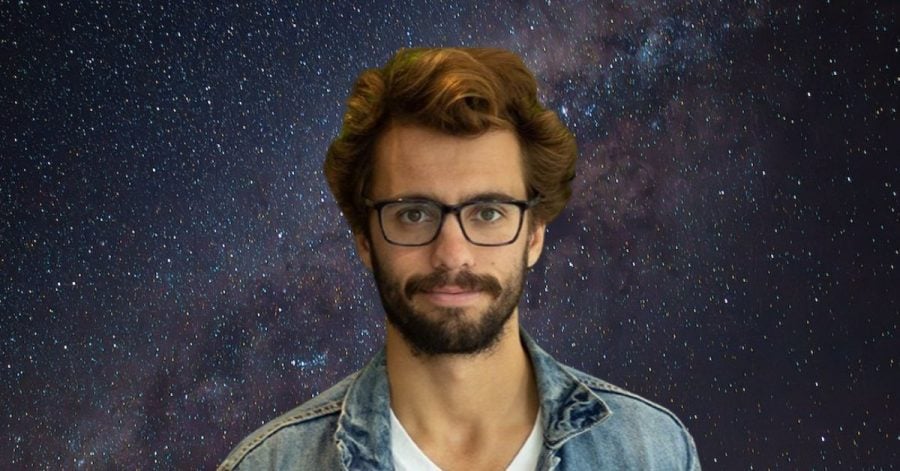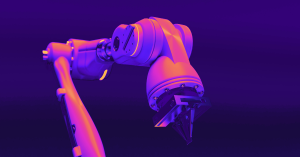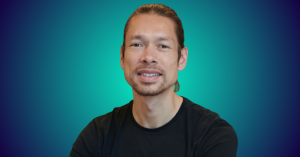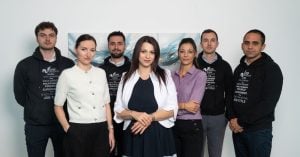For Bulgarian founder Delian Asparouhov, the future has always been written in the stars – and this especially goes for industries such as science and manufacturing. During the past decade, Asparouhov has been entangled between entrepreneurship and investing, aiming to get the best out of the two worlds through various roles at different startups and VCs, including San Francisco-based venture capital firm Founders Fund, where he is a partner.
In August 2020, Asparouhov co-founded Varda Space Industries, where he currently serves as president and chairman. Varda is pioneering space manufacturing for terrestrial applications, leveraging low-gravity environments and aiming to establish in-space material sourcing and asteroid mining infrastructure.
Two months ago, the startup initiated its inaugural test mission on a SpaceX rocket, featuring a 90-kilogram capsule explicitly crafted for drug research under microgravity conditions.
In an interview for The Recursive, Asparouhov discusses the future of manufacturing in space, the potential that the industry holds for further investments, as well as how Bulgaria and the rest of the CEE fare when it comes to the space industry.
The Recursive: Varda managed to launch a pharmaceutical factory into space within two and a half years, when the conventional timeline could have been much longer. What motivated you to set such an ambitious target?
Delian Asparouhov: I originally pursued it as an investment thesis at Founders Fund and ultimately realized that there wasn’t really anybody working on doing it the right way. There wasn’t the right sort of ambition, skill set, and so on. So, ultimately I decided that the only way that I could see my vision coming to market was through basically starting the company myself.
We decided to do it that summer 2020, and, to fast forward, three years later we’ve raised $54 million across our seed and Series A, and have $60 million from the strategic funding increase agreement with the US Air Force. We have probably 35-36 million in public dollars, basically, in revenue. And then, we just launched our first ever pharmaceutical space factory two months and nine days ago.
What were some of the challenges that you encountered during the launching of the test mission?
Everything from systems engineering and design – everything that we do at Florida has been done before.. So people have flown obviously small satellites before and they have manufactured pharmaceuticals in space before on the International Space Station. But combining it all into a single vehicle hasn’t necessarily been done.
People have done small re-entry capsules before although not relatively recently, but in the late 50s and early 60s, the US was doing quite often in the CORONA Spy Satellite programme before radios were powerful enough to basically send photos back via radio waves. So we clearly used to do it back in the day.
But again, integrating all of these processes – there wasn’t any one individual big problem, but the sort of integration of 1000 different systems altogether and making sure that they all work together was definitely a challenge.
An ongoing area that we’re working on is regulatory approval, we’re going to be the sort of first ever part for 50 or more re-entry licenses granted by the FAA, hopefully, relatively soon. That’s been even something where we’ve been working with the FAA on doing this type of re-entry over the US on land, and for the first time ever as a commercial entity.
We’ve had challenges working through and figuring out the product market fit and what customers are looking for. We had some luck on the DoD side of things when hypersonics became a national security priority, and it was something that we were very adept at either sort of solving on the pharmaceutical side of things and taking effort to go from what is currently more either sort of academic and small scale research on the International Space Station, to turning that into something is ready to be commercialized at a reasonable scale.
Varda’s focus on space manufacturing is forward-thinking and innovative. What opportunities do you see emerging in this field?
When you go up to space, you’re basically in microgravity because you’re constantly falling and a lack of gravity fundamentally affects chemical systems in a pretty significant way. Not always for the good but it affects them quite significantly.
We have decided to utilize some of those effects and apply them to the area of pharmaceuticals. Basically, you can change how solid state pharmaceuticals form, which significantly changed their performance, from everything to being able to pass blood brain barrier to solubility in your bloodstream.
So, you can take something that was previously a one to four hour intravenous drip and instead just be sent home with a couple of subcutaneous syringes until we basically apply the technology to improving the performance of pharmaceuticals.
Varda also has a vision of building an industrial park in space with over 1,000 people. How do you envision this project?
If you look at the current business models that operate in orbit commercially, there’s really only two that have shown success. The first is Earth communications, basically satellite internet, whether that’s Viasat or Starlink or things like that. And then the second is basically like Earth observation, whether that’s companies like Planet Labs, ISI, and so on.
Both of those business models effectively prefer to have large distributed systems or tons of different satellites, none of which would ever justify having a human onboard. It would always just be easier if a particular satellite hits the atmosphere and starts in the orbit, let it do orbit, or if it has particular performance issues, again, let it do orbit and just send up a new one.
In particular with pharmaceutical manufacturing, I think it’s much more likely that as you start to do more scaled production in orbit, you’re much more likely, relative to these other business models, to instead aggregate all of your systems into one large basically spacecraft.
Over time that spacecraft is making more sense instead of basically doing orbiting of whatever is an inoperative piece of equipment, to actually have a human do that type of maintenance similar to the type of maintenance it’s done on the ground and that pharmaceutical manufacturing on the ground is pretty automated at this point.
The type of work that we do up there, when it’s done down here, is mostly robotic, but even then, these robotic systems once every six months, once a year still require a human to come in and do some level of maintenance and adjustment.
So I think Varda will likely be the first commercial company that will have a justification for putting humans in orbit for something that is economical, rather than just state budgets justifying putting humans in orbit. So the marginal cost of us actually sending somebody up there and supporting them with life systems would actually either sort of be cheaper than the sort of marginal benefit that they would provide.
And I think that if we’re the first company that is able to send one human up there, then we’ll be the first one to send 10, 100, 1000 people, and so on. Obviously, as these things exponentially scale up, they can grow quite rapidly.
But we’re not sending humans up anytime – obviously our first 10 plus missions will be fully autonomous, but we think that this is the business model that will lead to humans eventually having economical or commercial reasons to be in orbit.
Bulgaria has a history of involvement in space research and technology. What is your connection with the country nowadays and how do you characterize its position and contributions in the international space community?
I think Bulgaria has actually one of the strongest positions partially because of the strong sort of math/science/computer science background that people have in the country. In particular, if you look at one of the most promising early mid-stage companies that does satellite integration and components, EnduroSat is based in Sofia, and it’s one of the fastest growing industrial companies in that field.
Interestingly enough, Varda is actually potentially going to be working with EnduroSat on some of future missions.This came from our individual engineers deciding who they wanted to work with and saying that one of the companies that is top of the lead right now is this Bulgarian company.
In some ways, that’s a perfect example of the fact that a very promising American company like Varda is proactively either choosing or deciding to work with a company like EnduroSat and you don’t really see us considering any other Eastern European company.
I think that Bulgaria is also quite well positioned because of the talent base, and then obviously because of the fact that it has one of the most promising sort of mid-stage companies in the field.
Do you think that there are specific areas or niches where the country can excel?
I think it would be a while before Bulgaria can afford to have its own launch provider, that’s pretty difficult. Even much larger countries such as France are struggling to do so and have their launch provider consistently going and competing against SpaceX.
So the area to fight off is some of these sort of smaller scale earlier stage areas like what EnduroSat is doing, so satellite integration components, among others, where there you can do it with a lower sort of total CAPEX, you can compete on unit cost basis because the cost of living, cost of labor, and cost of goods are so much lower in Bulgaria.
I think that’s partially why your team is seriously considering working with EnduroSat because ultimately they are very capable engineers, have very capable components, but they are also able to do it at a much cheaper scale than any of the Western Europe or US counterparts.
Also, Bulgaria has one of the fastest growing GDPs in Europe. There are population problems that obviously need to get fixed, but my intuition is that it is starting to be fixed because of GDP growth.
So if I were to give that advice, it’s to focus on these sort of components based business models that you can tackle with the sort of venture capital, availability and talent and arbitrage that Bulgaria has.
Founders Fund is sector agnostic – what are the current industries that the VC sees as most promising at the moment, and how does this also relate to the space industry for example?
Anytime that we’re considering an investment, we aren’t overly focused on a particular sector. So the investment firm gets into that mindset – there are times when it’s great to invest in consumer social internet, there are times where it’s great to invest in aerospace, there are times where it’s great to invest in FinTech and SaaS.
In particular in aerospace, if you look at Founders Fund investment history, we made a whole set of investments in 2007-2011 in companies like SpaceX, Planet Labs, etc. And then we almost took like a 10 year break and partially because there really weren’t any other business models that made sense to invest in at the time.
Now that generation 1 of companies has really succeeded, we have funded generation 2 companies, such as Varda or Hadrian, and those are the business models that we think are really viable today.
But we don’t think that there’s much beyond that, so what you might see again, is basically another 10 year break while this generation 2 companies succeed. Then, based on the infrastructure of generation 1 and having generation 2 succeeding, there might be a generation 3, but we don’t try to be overly focused and with the need to invest in aerospace at any one given time.
When there’s a particular inflection point in an industry, we want to be a part of it. We have definitely made investments in the world of AI, we led a round for OpenAI since there’s some inflection points there. But we also recently led the Series D for Neuralink, where obviously there’s nothing with AI, but we thought that there was a sort of huge inflection point for the company recently.
How would you rate the investment potential of Central and Eastern Europe?
Obviously as an investor you always have to focus on the long tail outcomes – UiPath for example proved that one could have a really long tail outcome in Eastern Europe. I try to spend a decent amount of time on the ecosystem, I spend a lot of time with the top venture capitalists across the region, given that if I’m not necessarily going to be the right person to do a seed round for a Central Eastern European company, as they come for their Series A or Series B, I can be an appropriate partner.
I think it’s an exciting ecosystem to continue to watch develop.The thesis I gave about Bulgaria probably applies across the region, which is really about strong engineering and physics, talent, lower cost of living, lower cost of capital and total CAPEX in order to produce innovation.








